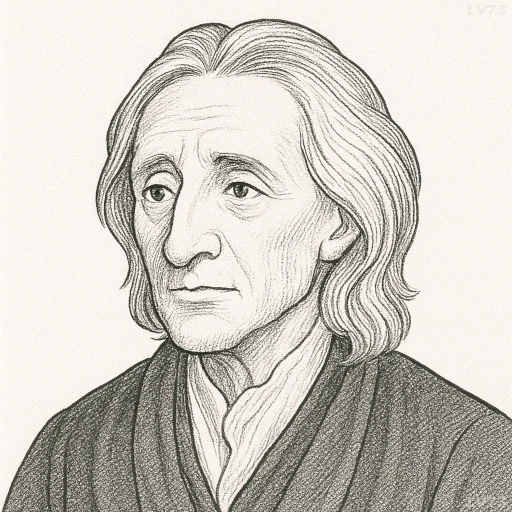“No man’s knowledge here can go beyond his experience.”

- August 29, 1632 – October 28, 1704
- Born in England (UK)
- Philosopher and political thinker
table of contents
Quote
“No man’s knowledge here can go beyond his experience.”
Explanation
In this quote, John Locke underscores one of the key principles of his empiricist philosophy: knowledge is limited to what one can experience directly. Locke argues that all human understanding arises from sensory experiences—what we see, hear, touch, and feel. According to him, we cannot know anything beyond what has been perceived or experienced, meaning that knowledge is inherently bounded by the limits of our sensory faculties and the experiences we accumulate over time. For Locke, our minds are like blank slates (tabula rasa) at birth, and it is only through interaction with the world that we begin to form ideas and knowledge.
Locke’s idea challenges the concept of innate knowledge, which was a popular belief among some philosophers at the time. Instead, Locke argued that all knowledge originates from experience—either through direct sensory input or through the reflection on those experiences. This empiricist view placed observation and experimentation at the heart of intellectual inquiry, which laid the groundwork for the development of the scientific method. For Locke, the process of gaining knowledge was an active one: it required engagement with the world, the ability to reflect, and the careful evaluation of what we encounter.
In modern times, Locke’s assertion is still highly relevant in fields like science, psychology, and education. The understanding that empirical evidence is the foundation of knowledge remains a core principle in these disciplines. For example, in scientific research, hypotheses must be tested through experimentation and observation, and conclusions must be grounded in verifiable data. Locke’s idea also plays a significant role in how we understand learning and personal development: our knowledge is shaped by life experiences, and we expand our understanding by continuing to engage with new information and perspectives. His insight reminds us that the limits of our knowledge are set by the scope of our experience, encouraging a continuous process of growth and discovery.
Would you like to share your impressions or related stories about this quote in the comments section?


